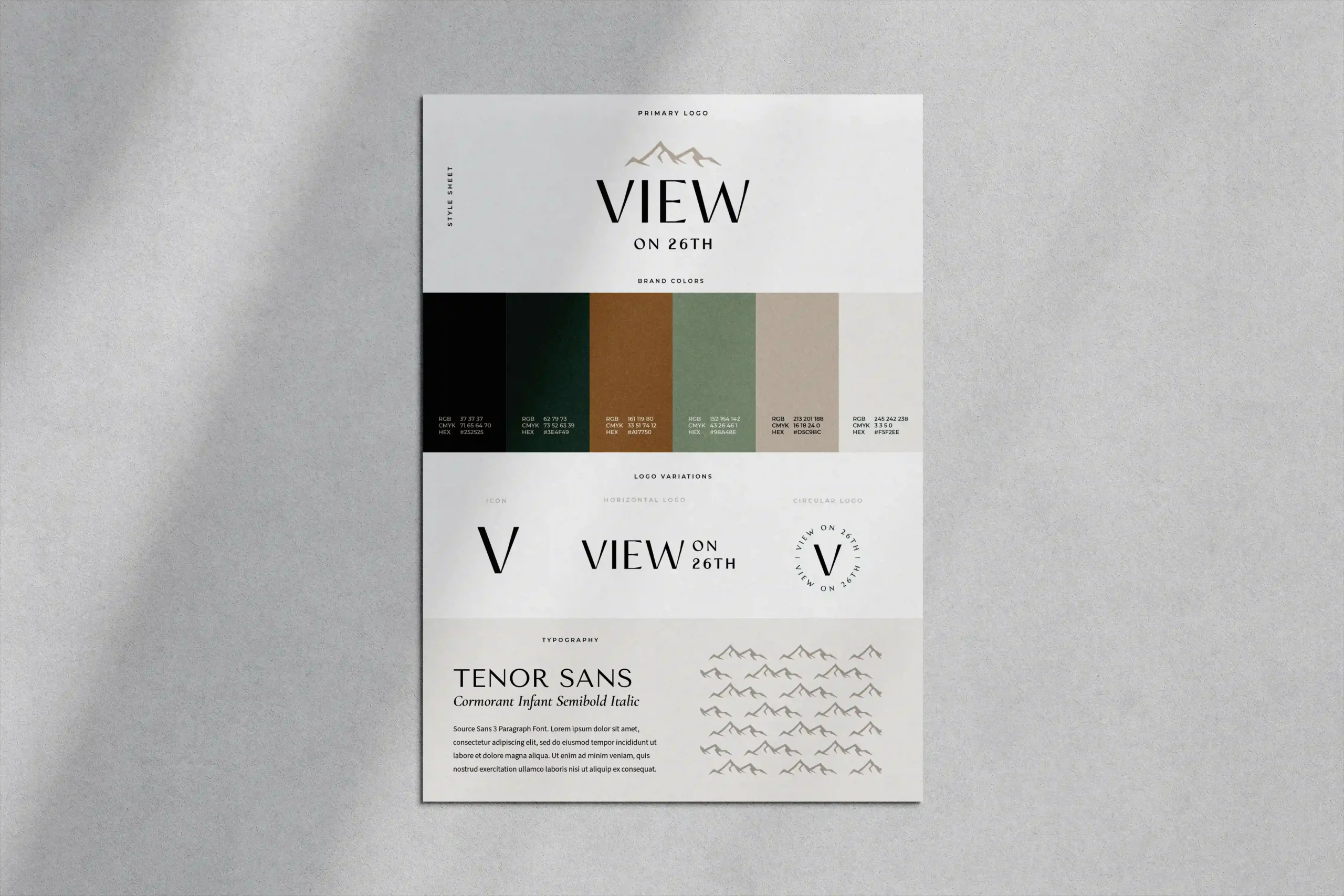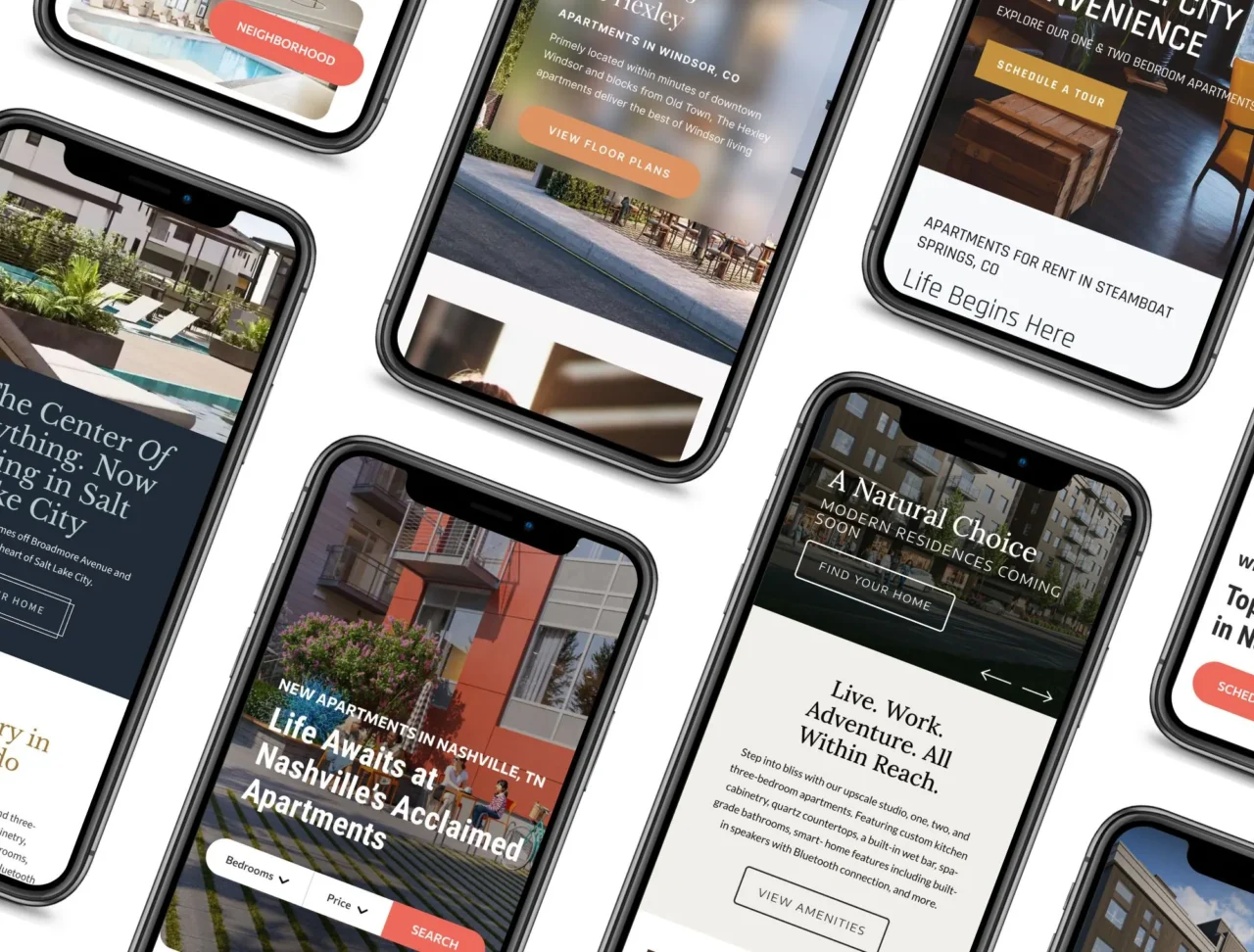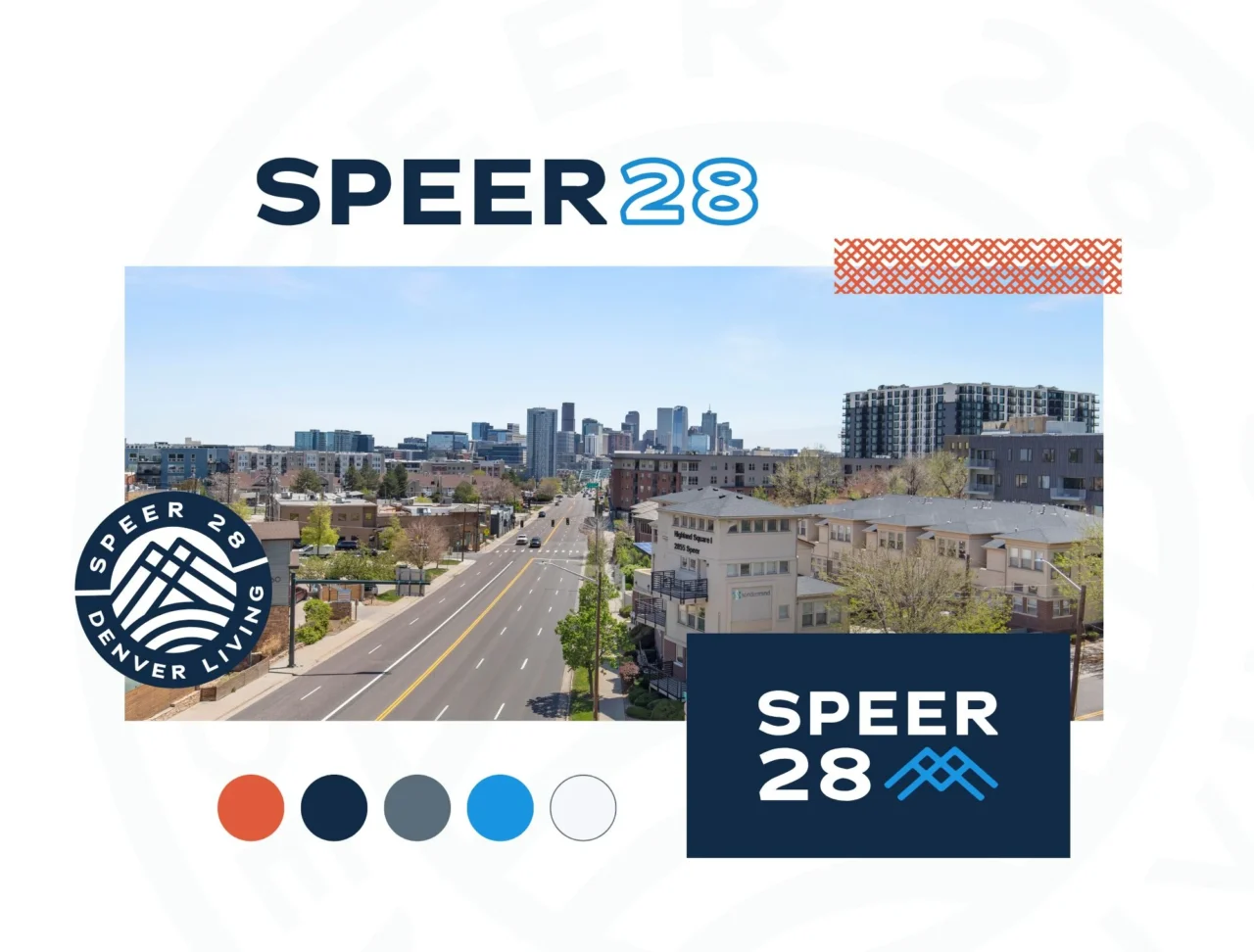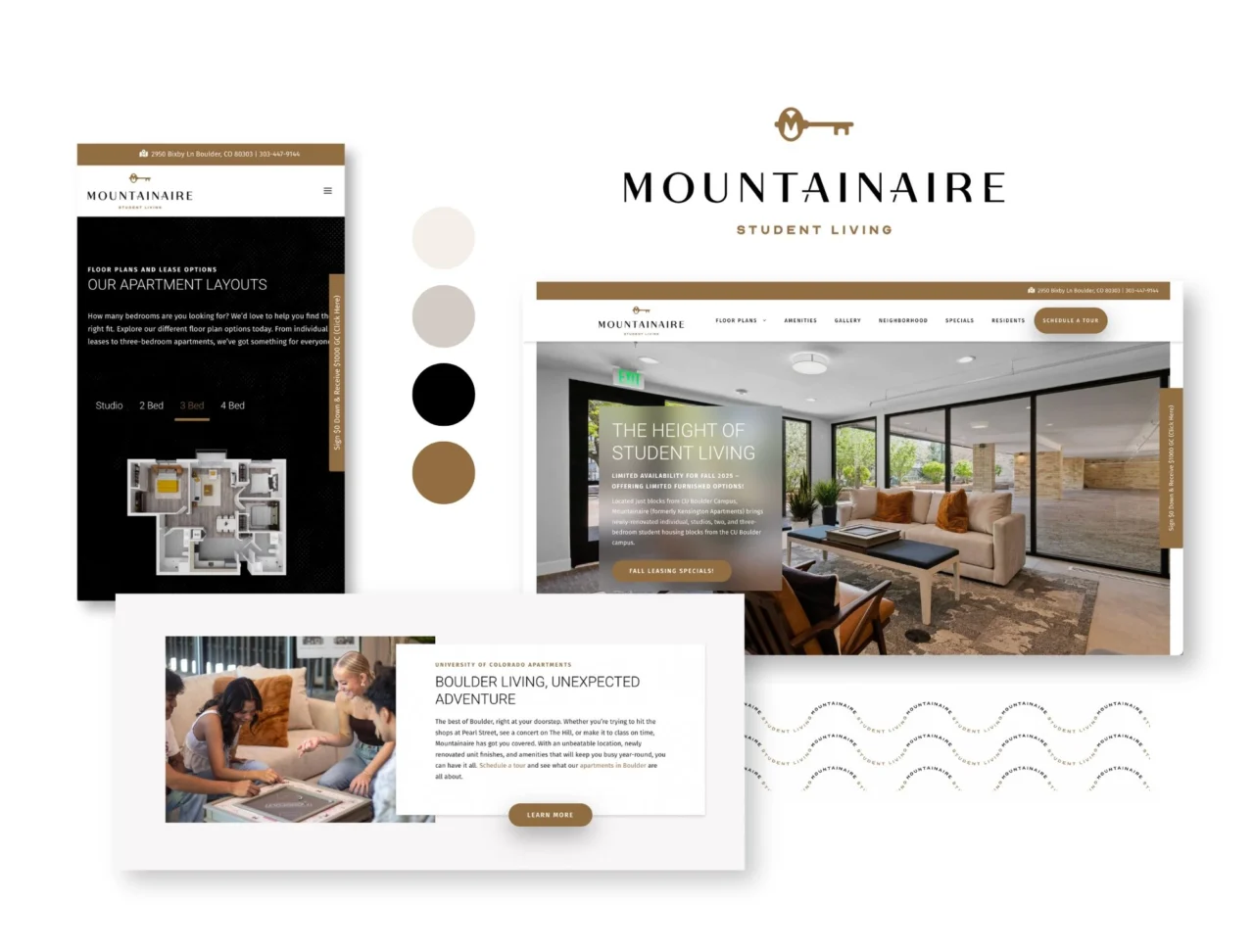A renter touring an apartment has already made most of their decision before they ever step through the door.
They’ve seen the website, scrolled the Instagram feed, watched a virtual tour, checked reviews, and compared the property’s “feel” to three others in the same price range. What shifted their interest wasn’t a flash sale or a concessions banner. It was the brand.
Millennials (born 1981–1996) and Gen Z (born 1997–2012) now make up the majority of the U.S. rental market. They don’t choose a place to live the same way Boomers or Gen X did.
Price and square footage still matter (and always will), but so do identity, values, visual style, and whether the space feels like it fits the life they imagine for themselves.
That shift is why apartment branding, not just marketing, has become a leasing advantage.
Why Millennials and Gen Z Care About Branding
They’re identity-driven renters.
A 2025 Deloitte survey found that 57% of Gen Z and 48% of Millennials buy from brands based on shared values. That behavior shifts naturally into housing: they want the community to feel aligned with how they see themselves.
They judge credibility visually, not verbally.
Gen Z processes information faster than any previous generation because they’ve grown up reading interfaces, not brochures. Bad typography or a dated logo signals “this place is behind.” A modern brand system signals competence and care before the leasing team ever speaks.
They expect consistency across every touchpoint.
A renter might:
- Click a Google Business Profile listing
- Browse the website
- Check TikTok for videos of the pool
- Read reviews on Reddit
- Email the leasing office
- Tour the building
If every one of those moments feels like a different personality, trust erodes.
They use different search paths entirely.
Gen Z uses social media as a search engine for apartments. Branding becomes the shortcut that helps them remember and share a property in a feed of endless content.
What a Complete Apartment Brand Includes
A full brand system isn’t just a logo file in a Dropbox folder. A complete apartment brand covers:
- Positioning statement (what space the community owns in the market)
- Primary + secondary logos, wordmarks, icon sets, and favicon
- Color palette with digital and print values
- Web + print typography rules
- Photography direction (lighting, editing style, subject focus)
- Voice and messaging guide (how to describe the brand without repeating “luxury”)
- Rules for signage, uniforms, social media, email signatures, and digital ads
- On-site experience details (welcome signage, move-in packaging, resident gifts)
Without this system, leasing teams improvise. Improvisation leads to drift. Drift turns a $45M development into “just another apartment building off [street name].”
How Branding Affects Leasing Performance
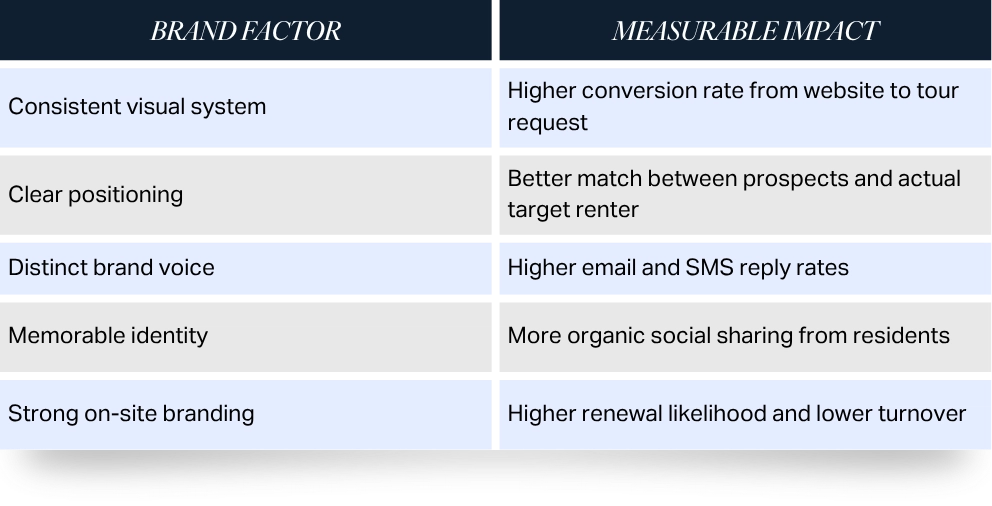
Branding isn’t only about aesthetics. It affects demand, perception, online reputation, and long-term revenue.
How Branding Influences Search, Social, and AI Discovery
Search is no longer just Google results. Renters now rely on:
- TikTok and Instagram Reels for walkthroughs
- Reddit threads for unfiltered resident opinions
- Google AI Overviews that prefer strong entity-level brands
- Visual search (camera → property match)
These formats reward recognizable branding, not keyword-stuffed websites.
When a property has a cohesive brand system, its visual identity becomes an anchor across platforms. The favicon, logo mark, color accents, and name style show up in SERPs, IG thumbnails, TikTok overlays, map pack cards, and email confirmations. Consistency is what cuts through the noise.
Apartment Brand Types That Resonate with Next-Gen Renters
Wellness-first living
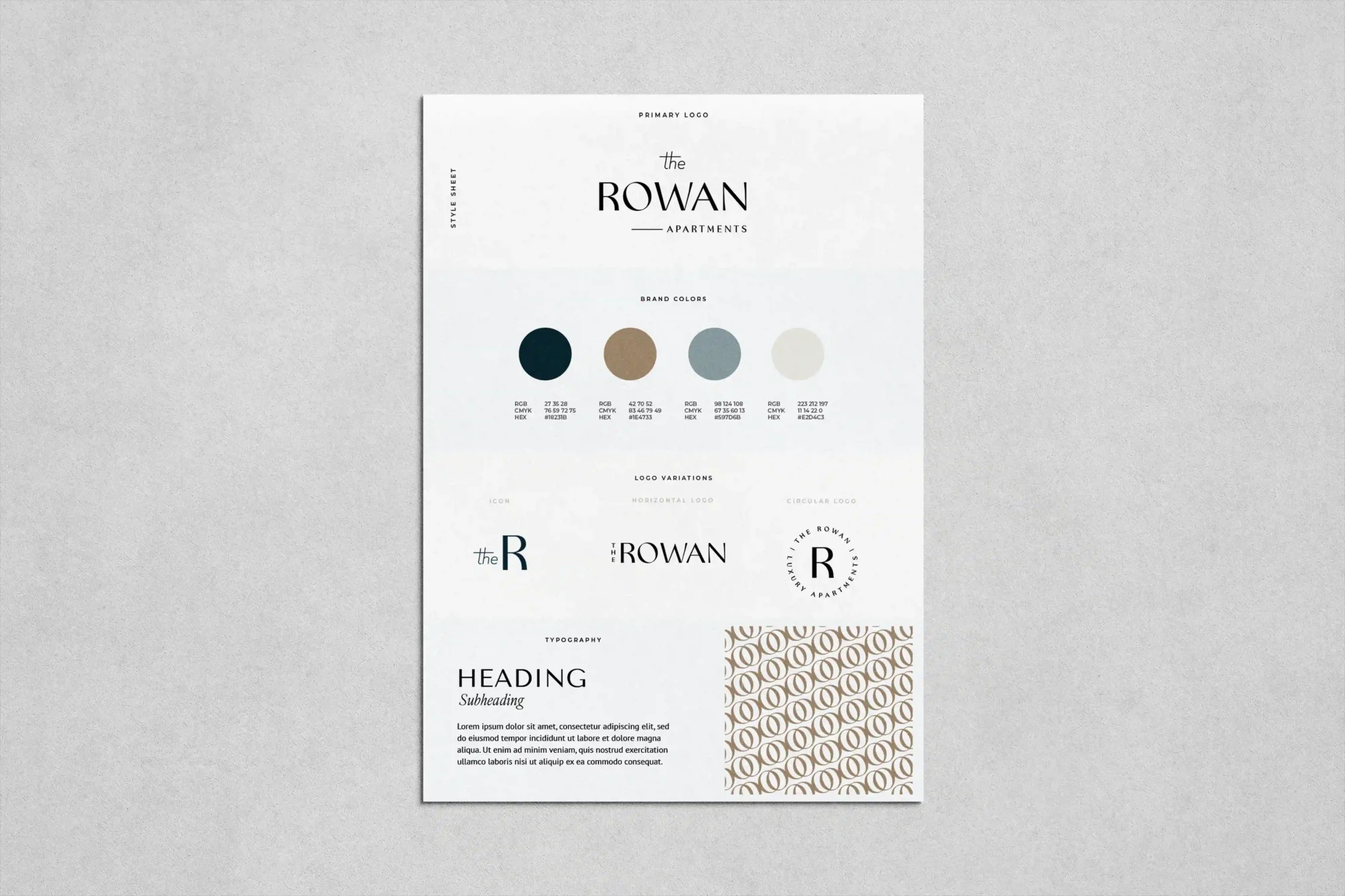
Muted color palette, natural textures, spa-style photography, soft tone of voice. Used by communities emphasizing amenities like: fitness center with free weights, sauna or steam room, cold plunge, spa-style bathrooms, filtered water stations, and blackout blinds in bedrooms.
EXPLORE THE ROWAN BRAND KITTech-forward smart homes
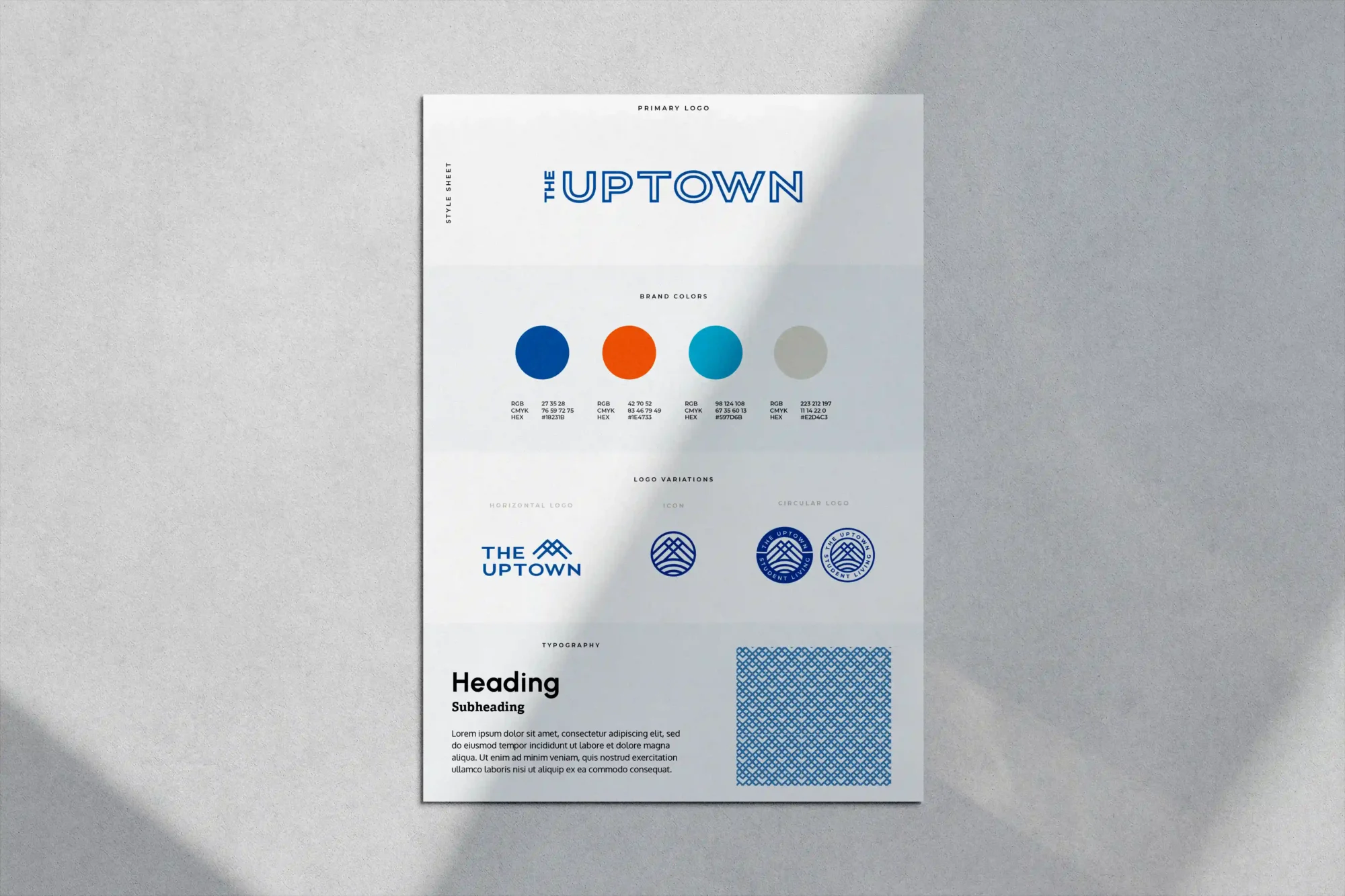
Geometric logo, electric blue accent, clean sans serif typography, crisp motion graphics. Pairs with app-based access, deposit-free leasing, and co-working emphasis.
EXPLORE THE UPTOWN BRAND KITCreative urban collective
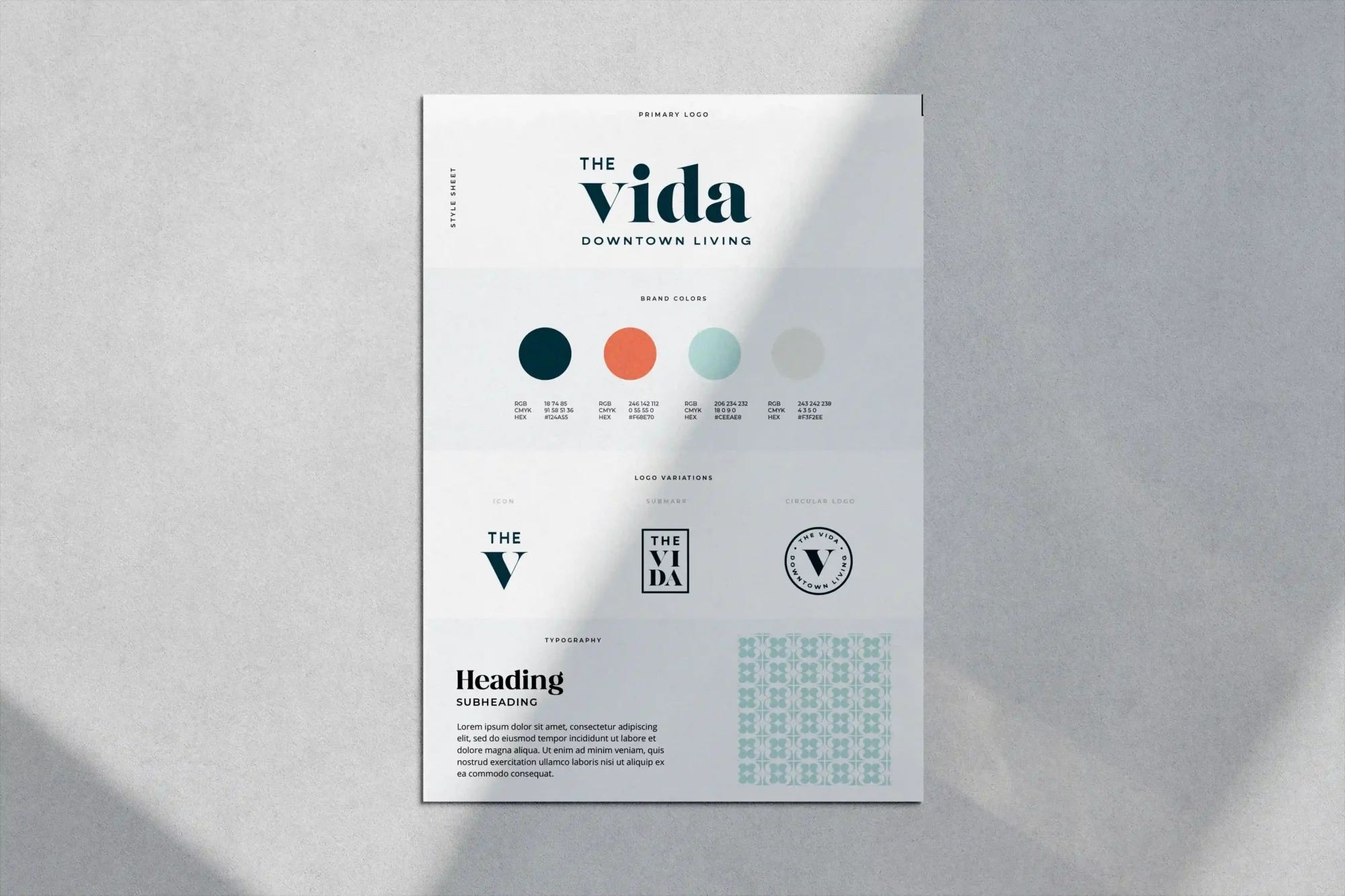
Hand-drawn typography, illustrative icon set, bold color blocking, local artist features. Works for micro-units and adaptive reuse buildings with younger renter profiles.
EXPLORE THE VIDA BRAND KITEco-rooted community
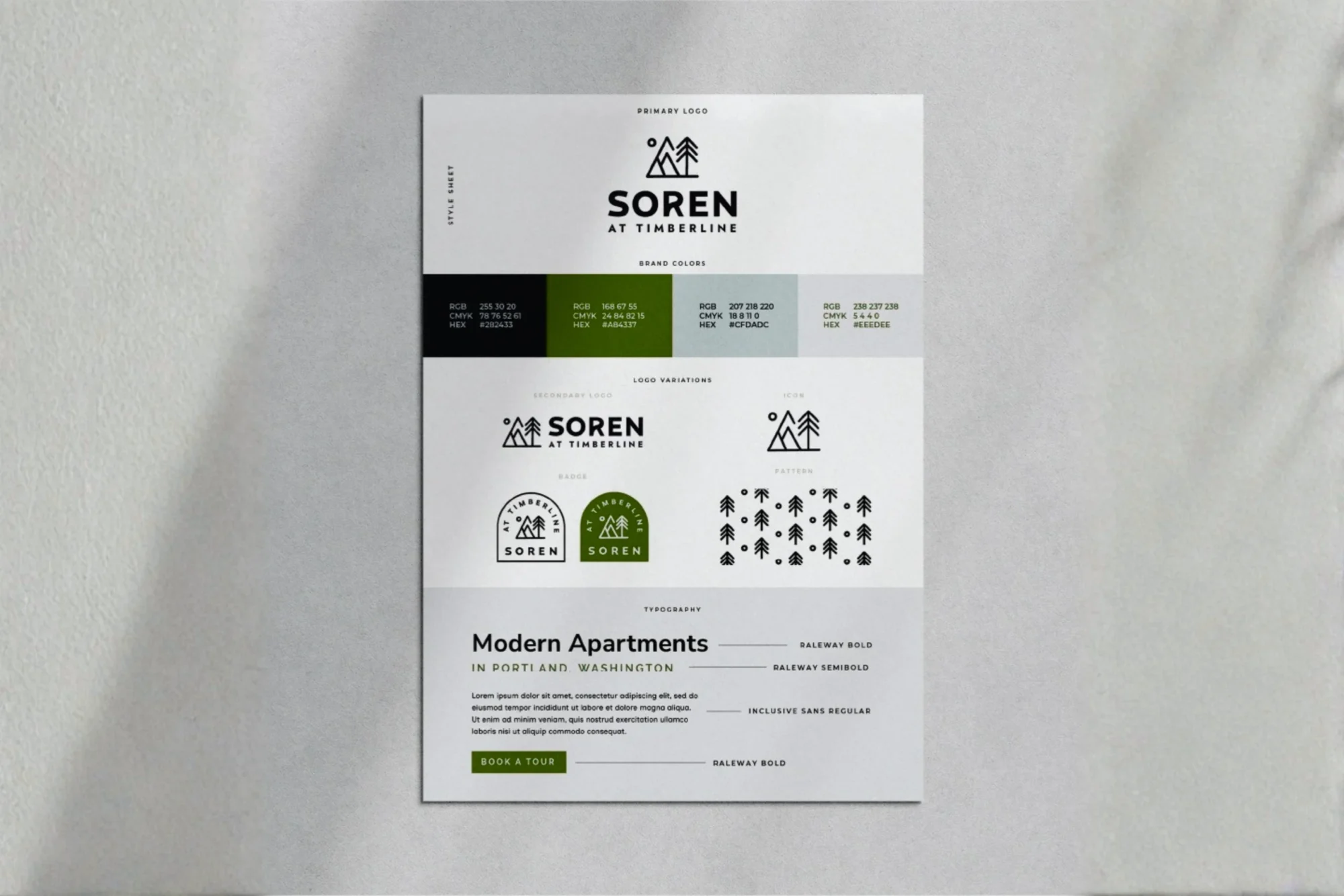
Earth tones, recycled paper textures, plant-forward photography, value-driven copy. Ideal for LEED-certified or solar-powered communities.
EXPLORE THE SOREN BRAND KITPro tip: Every strong apartment brand takes a clear point of view, and not one of them depends on the word “luxury.”
Where Apartment Branding Usually Falls Short
- Using a single horizontal logo for everything (no stacked or icon version)
- Outdated color palettes that fail ADA contrast guidelines
- Websites built before the brand existed
- Signage and digital assets designed by different vendors
- Stock photography that contradicts the brand voice
- Calling everything “upscale” or “luxury”
If everything looks like something any property could say, it’s not a brand.
How to Build or Refresh a Brand Without Starting from Scratch
- Audit every renter touchpoint: GBP listing, socials, website, brochures, signage, emails, floor plan PDFs.
- Identify mismatches: inconsistent shades of the same color, logo distortions, clashing tones.
- Clarify the brand position: who the property is for and why.
- Create a modernized identity system that works across web and on-site.
- Roll out the system everywhere at once; brand relaunches work best when visible.
This is the process we follow at Bluprint when building apartment brand kits. Each kit includes logo files, color specs, typography rules, sample applications, and a brand reference PDF so onsite and digital teams stay aligned.
Apartment Branding For Next-Gen Renters FAQs
Is branding different from “reputation” or “aesthetic”?
Yes. Reputation is what people say about you. Branding is what creates the conditions for that reputation.
Do I need to rebrand if only the amenities are being updated?
If the renter profile is changing, yes. If not, a brand refresh may be enough.
How long does a full brand project take?
Most apartment brand kits take 1–2 weeks from strategy to final files.
Will branding help SEO?
Branding strengthens entity signals, improves conversion rates, and supports AI/search results, but it is not a substitute for SEO.
Can a property keep its name but still rebrand?
Yes. Many properties keep the name but overhaul the visual identity and messaging.
Do renters really compare brands the same way they compare consumer products?
Yes. Apartments now sit in the same mental category as gyms, clothing brands, and tech products. If the brand feels off, they assume the experience will be too.
Does branding matter for Class B, C, or value properties, or only high-end builds?
Branding matters more for Class B and value properties because it’s how you differentiate beyond price. A strong identity can turn “budget” into “intentional minimalism” or “smart value.”
Attract The New Generation of Renters
A strong brand is now part of the leasing infrastructure. It earns trust, accelerates decision-making, and gives renters something to believe in, not just a place to sleep.
If your community needs a brand system that works across signage, web, and leasing touchpoints, see how Bluprint builds apartment brand kits that are made for today’s renter, not yesterday’s marketing playbook. Book a call today.



